Greek crisis deepens amid EU tensions
- Published
- comments
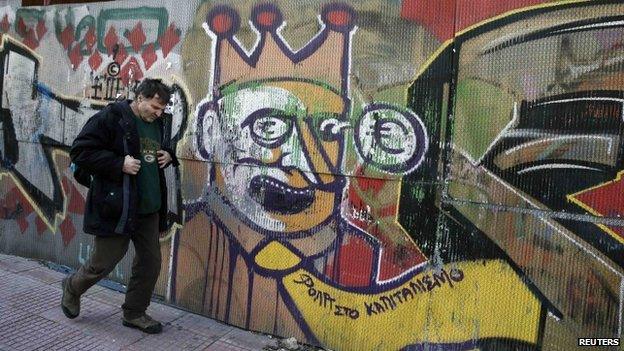
If there is no deal soon Greece could run out of money
After hours of fast-moving developments, a deal to settle the Greek bailout crisis hangs in the balance.
This morning Greece confirmed that it was sending a letter to the head of the Eurogroup, Jeroen Dijsselbloem. It was a formal request to extend the loan agreement by six months.
The Greeks were offering significant concessions. They said they would refrain from taking any unilateral action that would undermine fiscal targets. They agreed that officials from the European Union, the European Central Bank and the International Monetary Fund - formerly called the troika - would supervise compliance with the deal.
This was a significant step. Although the Greek prime minister has announced the troika as dead, officials from those institutions would still very much be active.
Greece also pledged to meet its financial obligations to all creditors.
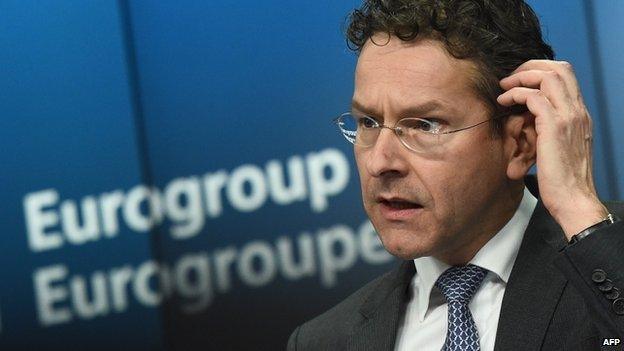
Eurogroup head Jeroen Dijsselbloem said eurozone finance ministers would discuss Athens' request
The Greeks clearly expected that this would form the basis of a settlement.
Shortly after they had sent the letter it was announced that eurozone finance ministers would meet in Brussels on Friday afternoon.
The financial markets responded positively. They saw the meeting as a positive sign. Officials in Athens were briefing that they expected a deal Friday.
Then, in Brussels, there was the usual midday briefing by the European Commission.
The spokesman Margaritis Schinas revealed that Jean-Claude Juncker, the Commission President, had been involved in intense talks with the Greek Prime Minister Alexis Tsipras.
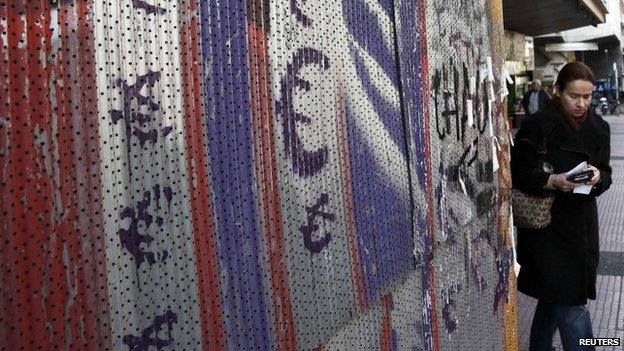
Greece has said it does not want to leave the Euro
Mr Juncker, we were told, "sees in this letter a positive sign, which, in his assessment, could pave the way for a reasonable compromise in the interests of the financial stability in the euro area".
Brussels appeared to be giving its backing to the Greek letter.
Less than an hour later there was another briefing in Berlin at the finance ministry in Wilhelmstrasse in Berlin.
An official, speaking on behalf of the German Finance Minister Wolfgang Schaeuble, said the Greek letter was "not a substantial proposal for a solution".
He went on: "In truth it aims at bridge financing, without meeting the requirements of the programme."
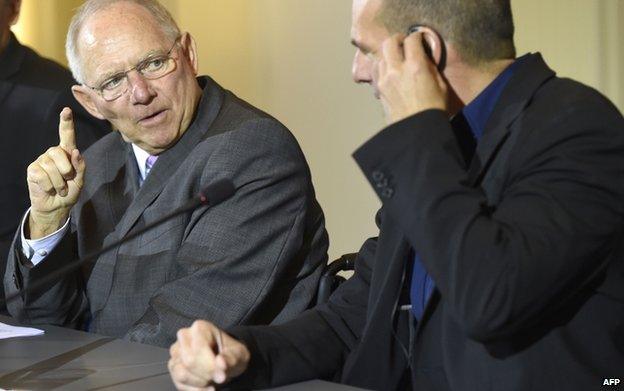
German Finance Minister Wolfgang Schaeuble has been one of Greece's toughest critics
For the Germans there is a point of principle here. They want Athens to stick to commitments made by the previous Greek government.
Secondly, they fear that Greece will gradually weaken some of the austerity conditions that were at the heart of the existing bailout deal. Berlin wants cast-iron assurances that Greece won't rehire public sector workers, for example.
So there is tension between Brussels and Berlin and mistrust between Berlin and Athens.
Some in Greece are already angry, believing they are being asked to capitulate and their election result ignored.
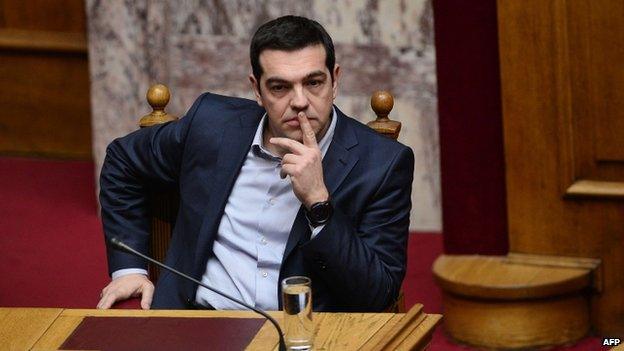
Alexis Tsipras was elected on a promise to end austerity measures
It may be difficult for the Tsipras government to concede more. All the time pressures are mounting.
If there is no deal, the current bailout agreement will expire at the end of the month and Greece could run out of money shortly afterwards.
Today the Italian Finance Minister, Pier Carlo Padoan, warned: "We have to send a signal that the euro is irreversible.
"If a country were to leave, it wouldn't just mean one less country in the union but the transformation of the euro into a mechanism that can be undone."
- Published19 February 2015
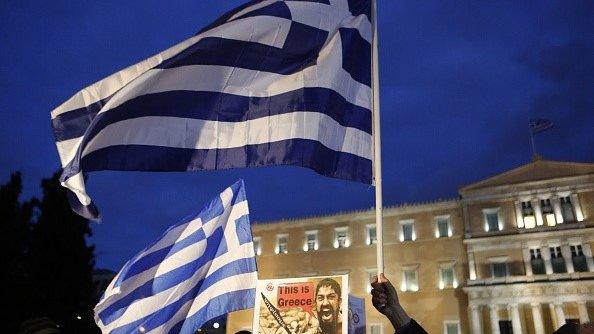
- Published17 February 2015
- Published17 February 2015